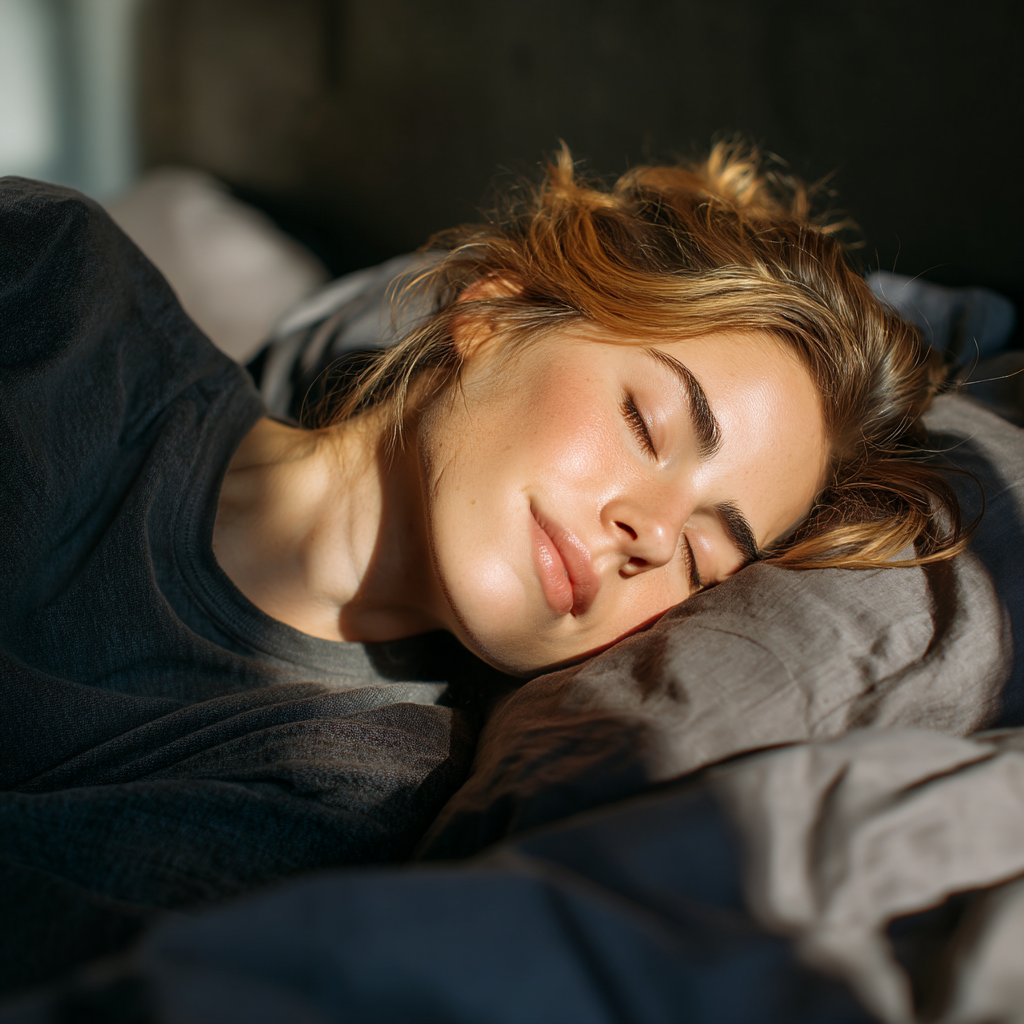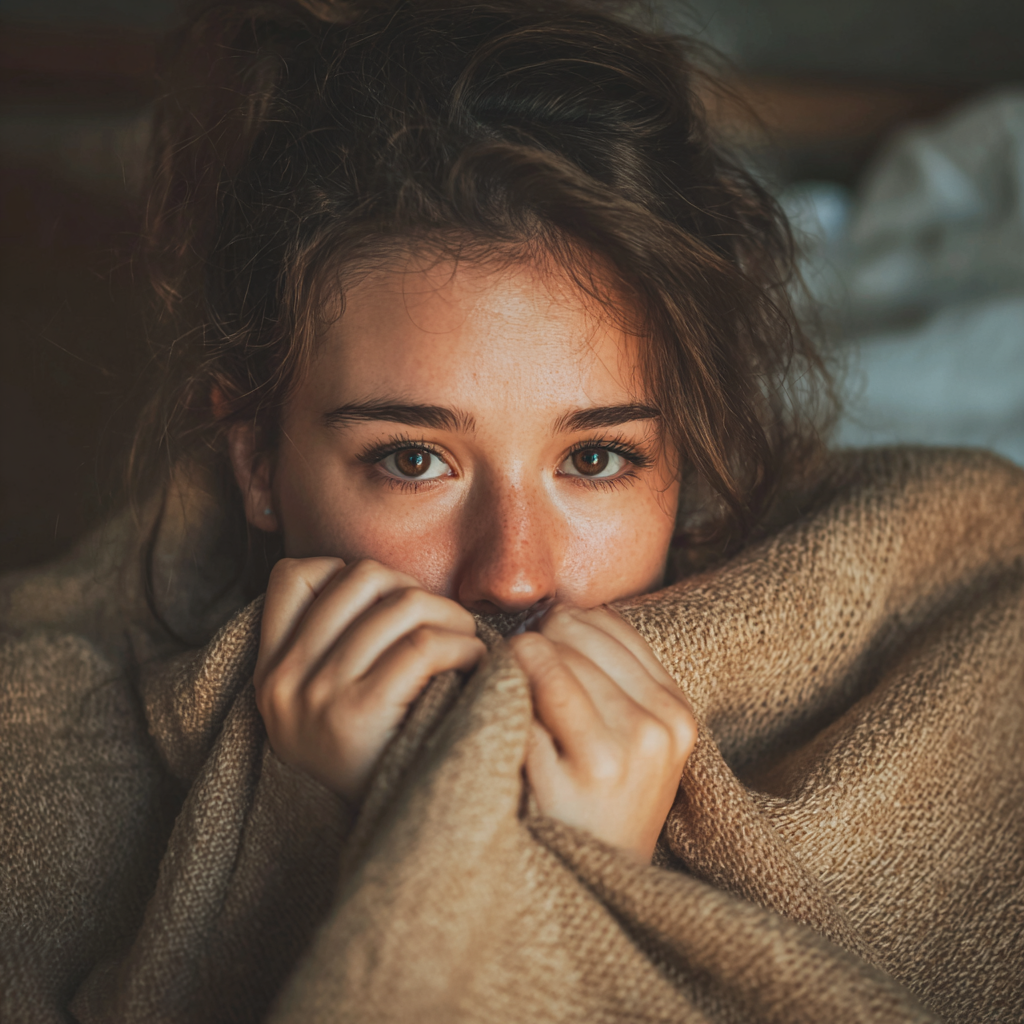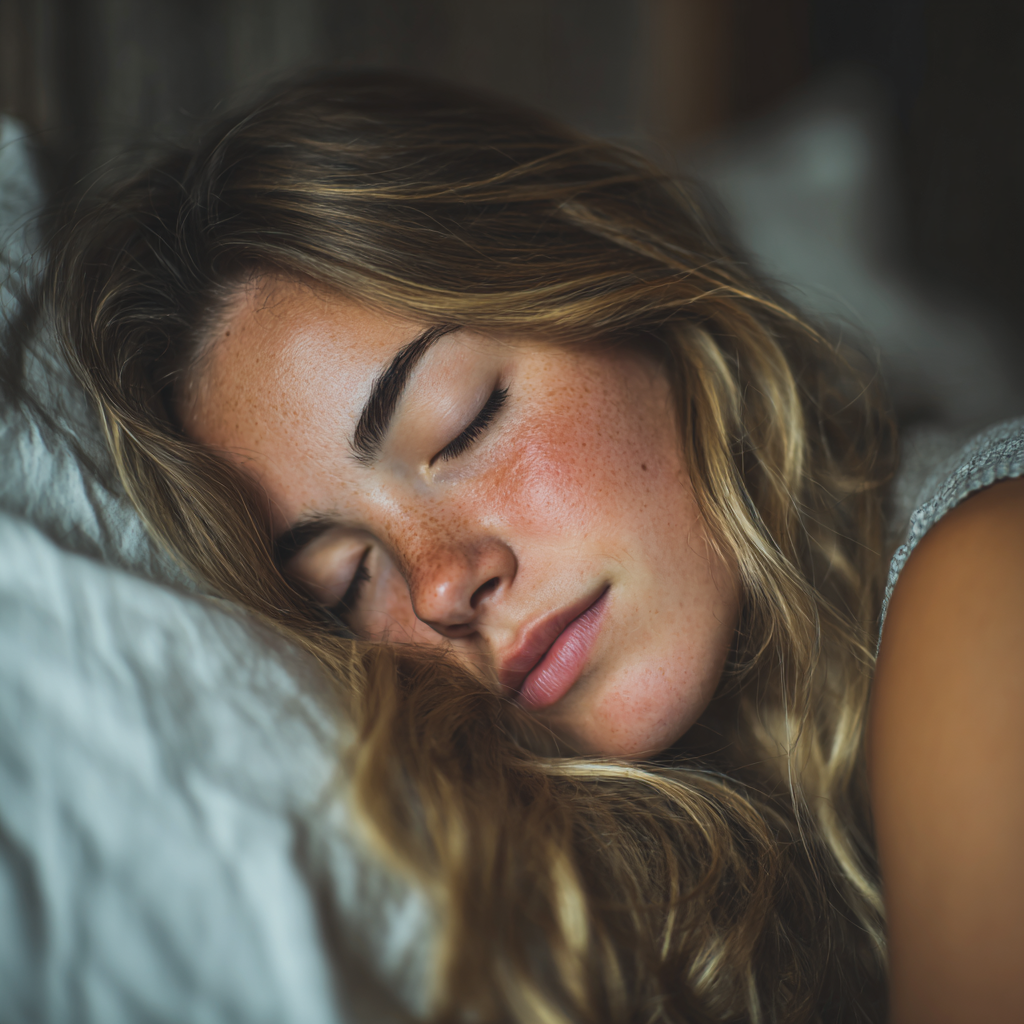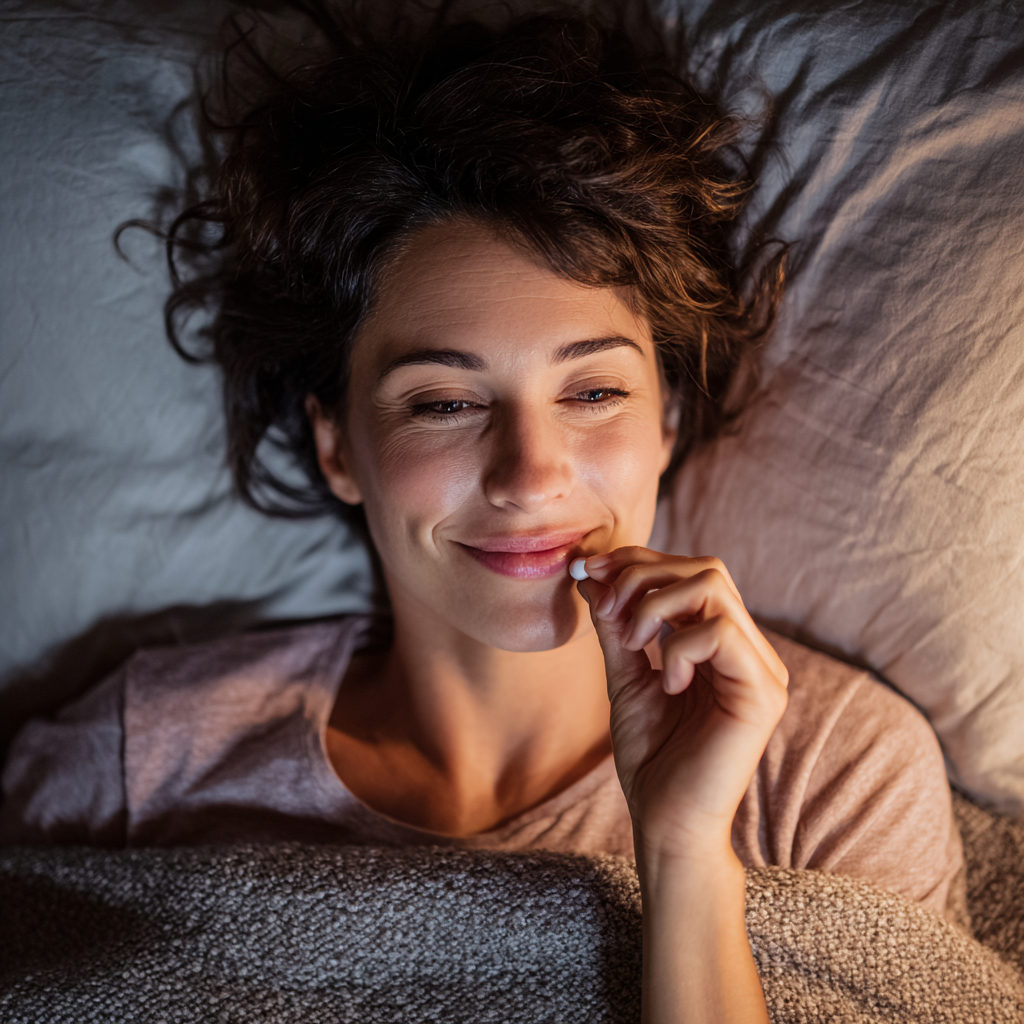Strange dreams, tossing and turning, and waking up several times a night.
It's common to experience occasional poor sleep quality when feeling uncertain and unsettled.
But your overall health relies on your body getting a good night's sleep. Sleep is necessary for your immune system to function properly.
Think of sleep as the break between innings so your body gets a chance to recover and establish a new game plan.
The less sleep you get, the less prepared your body will be to go out and win the day.
If you've been experiencing occasional restless nights recently, you're not alone.
Let's break down what happens to the body when you don't get enough sleep, and dig into some of our top strategies to improve your sleep hygiene so you can support a healthy immune system.
1. The Hard Truth About Poor Sleep Habits

The NIH estimates that up to 30% of people experience sleep disruption regularly.
In fact, the two most common symptoms reported were waking up unrefreshed and waking up several times a night.
These aren’t the only symptoms people experience. Other sleep concerns include:
- Difficulty falling asleep
- Waking up too early
- Relying on the snooze button
- Daytime exhaustion;
- Irritability
- Hard time focusing and remembering
If you’re ready to get better shut-eye, read on. Find out why sleep is good for your health, how much you really need, plus five of our best sleep hacks so you wake up rested.
2. Why Sleep Is Good for Your Health

It’s easy to think our bodies shut down during sleep. But it’s an active time of processing information, restoring and repairing cells, and strengthening tissue.
A big part of sleep has to do with memories. We spend an ample part of our day thinking, collecting information, and making big decisions.
Sleep helps us process it all.
Research shows that after sleep, we move information from short-term to more long-term memories in a process called consolidation.
This is why your dreams seem to reflect your day. Even when they are weird. It’s your brain processing information from your day, so you retain it better and perform better memory-related tasks.
Not only does your brain go to work to store information while you sleep, but your body goes into repair and growth mode.
Your body requires long periods of sleep to:
- Support healthy immune function
- Grow muscle - Repair tissue
- Synthesize hormones
- Restores brain function
- Protects your heart
It’s no wonder we feel our best after a deep, restful night of sleep.
3. How Much Sleep Do You Really Need?

Sleep is crucial for health, and many of us get too little of it.
Here’s the breakdown on how much sleep you need per night:
- 7-9 hours for adults
- 11 to 14 hours for infants
- 9 and 11 for school-aged children
- 8 and 10 for teens
Kids need more sleep because they learn language, social, and motor skills at an astounding rate. But that doesn’t mean as an adult you should skimp on zzz’s.
In fact, so many adults live in sleep debt, they forget what it’s like to be truly rested. Like everything else, sleep needs vary from person to person.
A good way to check if you’re getting enough sleep is to ask these questions:
- Are you healthy, happy, and productive on the amount of sleep you’re getting?
- Do you have health issues that may be related to a lack of sleep?
- Are you experiencing sleep problems?
- Do you rely on sleep aids at night or stimulants during the day?
- Do you feel sleepy when driving, or performing regular tasks throughout the day?
Some people function well on six hours of sleep each night, while others need more than nine to feel fully charged.
It’s important to evaluate your own needs and make adjustments accordingly. If you feel more sleep is in order, check out these sleep hacks.
4. Five Sleep Hacks To Wake Up Rested

Ditch Dirty Light Before Bed
If you decide to change only one sleep habit, make it ditching dirty light -- aka blue light - before bed. Blue light emits from your cell phone, computer, and TV. And it’s ruining your sleep by disrupting the production of melatonin, the hormone responsible for regulating your sleep cycle.
Though any light during sleep can disrupt melatonin, Harvard researchers discovered that blue light suppresses melatonin for about twice as long as other light studied. It also shifts circadian rhythms twice the amount.
When you go to bed, it’s best to:
- Use blackout curtains or an eye cover
- Get rid of clocks with lights or anything else that glows
- Shut down electronic devices two hours before bed
- Switch to a warm light setting on your phone
Declutter Your Head
Worry keeps a lot of people up at night. Even though your body’s in bed, your brain may still be out in the world trying to get things done.
Research shows daily meditation helps regulate thought patterns and break the train of thought that runs through your head while trying to relax.
Daily mindful meditation teaches you to focus on specific breathing techniques while bringing your thoughts to the present, rather than worrying about the past or future.
The key to meditation is to take it step-by-step. It’s not about being perfect, but making an effort. The goal with daily practice is to train a reflex in your body that brings you to a relaxed state more readily.
Write It Out
To-do lists, jobs to get done, errands to run. These are all things that keep us up at night. Journaling before bed helps set your mind at ease by getting all your thoughts down on paper.
Journaling can be task-focused, like writing out your to-do list for tomorrow. Or it can be about daily affirmations and gratitude.
I recommend a little bit of both. If something is bothering you or you fear you’ll miss a deadline-- write it down. If you have a little extra space in your day, write about three things you are grateful for that day.
Sip A Hot Beverage
Herbal teas are a great way to soothe the body and settle in for the night. Avoid anything with caffeine, and look for herbs that promote healthy sleep.
Moon milk is also a great bedtime treat with relaxing properties. Like Truvani’s Lavender Cacao Moon Milk:
- 1 cup of milk of your choice
- 1 tablet of Truvani Ashwagandha
- 1 tablespoon of dried lavender flowers
- 1 teaspoon vanilla bean paste
- ½ tablespoon cacao powder
- 1 tablespoon of honey
- Pinch of pink salt
Add all ingredients into a stovetop saucepan. Stir occasionally and let simmer for 5 minutes.
Pour mixture through a strainer and into a mug. Froth and top with a dollop of whipped coconut milk.
Have a Ritual
We thrive on rituals and routines. These daily habits help ease our mind and regulate our systems.
Create a bedtime ritual that you stick to every evening, and it will help you fall asleep faster. Everything listed above can be part of your routine.
You may also want to add supplements to your nightly routine that promote relaxation like Truvani magnesium.
It’s simply a matter of putting it all together and sticking to a designated time. If you want to fall asleep by 10pm, it’s best to start your ritual at least an hour early.
It may look something like this:
8:30: turn off anything that emits blue light
8:45: sip hot tea while journaling
9:15: breathing/meditation exercises
9:30: hygiene practices
9:45: lights out (earplugs, blackout shades, or eye mask)
5. Road To Better Sleep

Like any habit, getting better sleep is all about replacing old habits with new ones. Try one new thing a week, so you don’t feel overwhelmed with a ton of changes all at once.
Go through the list and figure out which new practice will be easiest to start. Once you nail that down, find your next habit to change.
Soon you’ll settle into a new bedtime ritual that will make you wonder how you ever lived without it.
About Author:
By Stevi Portz, Content Strategist at Truvani









Feedback Junction
Where Thoughts and Opinions Converge